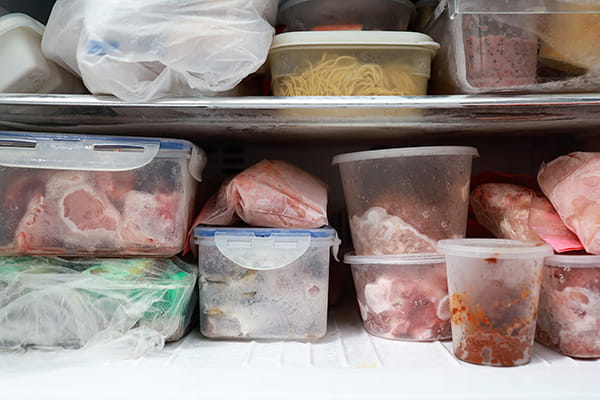According to The Journal of Biological Chemistry, our brain and heart are made up of 73 percent water, our lungs are 83 percent water, our skin contains 64 percent water, our kidneys are 79 percent and bones are 31 percent. Our body loses water when we breathe, sweat and digest, which is why it’s so important to make sure we replenish water through drinking fluids and eating foods that contain water. Just like your pool at home, this amount of water must maintain a balanced pH level. Your pH level measures how acidic or alkaline our body is. The ratio of positively charged ions and negatively charges ions is constantly being balanced by your body’s internal systems. A normal range for pH level in arterial blood is 7.35-7.45. Our pH is affected by our diet, water intake and lifestyle. Within the normal range, your body is at an alkaline state.
Here are a few things that may indicate that your pH level is off:
Eating: Eating the wrong foods or too much animal protein may affect the balance of positively and negatively charged ions in the body. This imbalance may cause digestive problems. If you’re experiencing an abnormal amount of stomach discomfort, think about what you’ve eaten lately.
Drinking: Drinks that contain a high amount of refined sugar may have an effect on the pH level in your body. It’s also important to drink plenty of fluids without refined sugar. Is your urine darker than normal? This may be a sign that your body is working overtime to correct this imbalance.
Sleeping: Have you noticed that you aren’t falling asleep as quickly as you usually do or you wake up in the middle of the night and find it hard to get back to sleep? This may indicate you’re leaning toward the more acidic range.
Here are a few things you can do to keep your pH in check:
Eat more greens: Mom always said to eat your green vegetables. Chlorophyll, which is present in a lot of different types of green vegetables, works as a detoxifier in the body.
Add a twist of lemon: Despite the fact that we think of citrus as acidic, lemons are alkalizing because they can help break down and provide alkaline mineral salt compounds.
Skip the refined sugar: Certain soft drinks and juices contain aspartame or other chemicals that can cause urine to become too acidic to pass safely through our body. This causes the body to work double time to keep that acid from damaging your urinary tract.
Take a vitamin: In some cases, your pH level may be off because you have a lack of vital nutrients that hasn’t been satisfied by your diet. Try incorporating a multivitamin into your day.
While some of these tips may make you feel better, our body is an extraordinary machine and has internal processes that help correct most of our imbalances, including pH. Speak with your physician about how to keep your body in balance.




